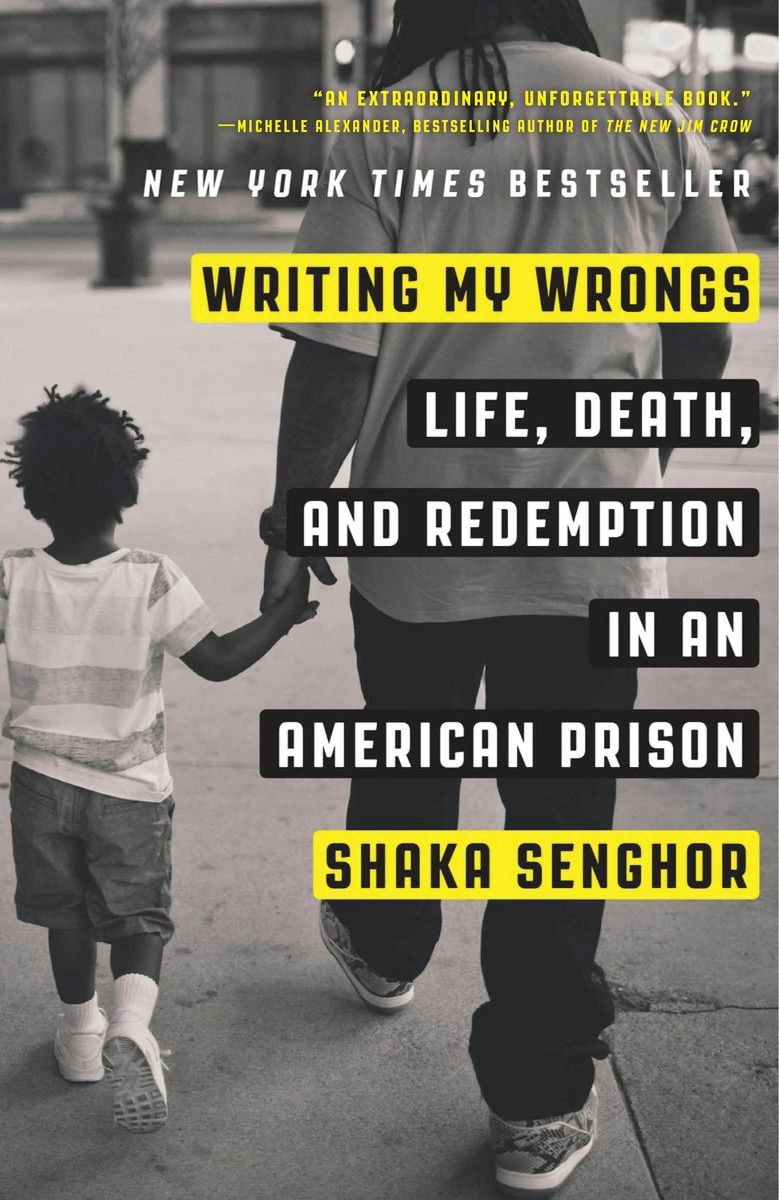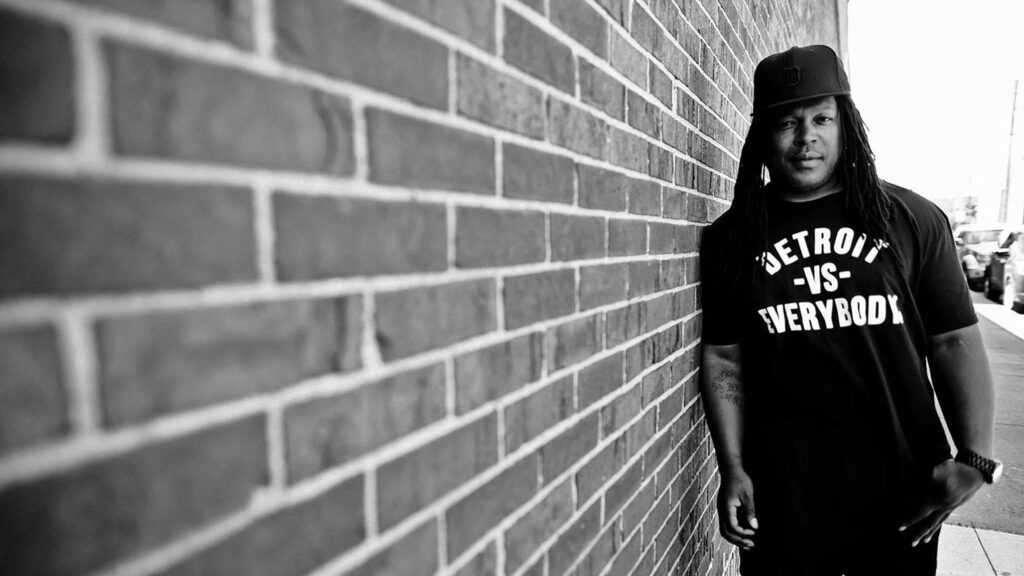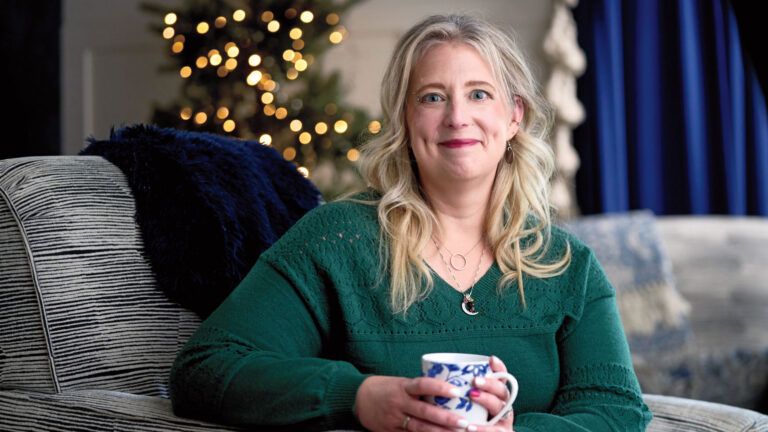Today, Shaka Senghor is a motivational speaker, a mentor, an MIT Media Fellow alum, one of Oprah Winfrey’s Super Soul Sunday guests and the New York Times best-selling author of Writing My Wrongs: Life Death and Redemption in an American Prison. Seven years ago, however, Senghor was still an inmate serving a 40-year sentence for second-degree murder.
The Detroit native was just 19 years old on the night that changed his and another young man’s life forever. Paranoid after being the victim of a shooting himself, Senghor believed the young man (whose real name he keeps private out of respect for the victim’s family) was a threat to his life. In reality, Senghor was the threat, and, in a drug deal gone bad, he shot and killed his victim after an argument.
In his memoir, Senghor shared that he was often physically assaulted by his mother for small infractions. Those 
“Day by day, we were all being stripped of our morals,” he wrote of the impact of the harsh environment he’d become a part of as a drug dealer, as compared to the respectful way his family had raised him. Due to his mother’s rejection and the life of a criminal he was leading, Senghor began to wrestle with feelings of worthlessness, and even planned his own suicide. The thought of his 2-year-old nephew who lived with him finding his lifeless body was the only thing that stopped him. But his pain didn’t go away.
By the time he was 19, confronting an unhappy customer with the gun he’d carried ever since he had been shot two years earlier, Senghor was so full of anger, sadness and hurt that he took another man’s life without thinking twice. It would be 5 years before he began to accept the full weight of what he’d done that night.
While in prison, Senghor received a letter from his victim’s godmother, asking him why he’d killed her godson. Riddled with guilt, Senghor began to use writing as a way to deal with his emotions. “Saying I am sorry for robbing you and your family of your life seems too small a gesture,” Senghor wrote in a letter to his victim five years into his sentence. “I wish I could restore your life.”
He also wrote back to the godmother, apologizing for what he’d done. Senghor first learned of the healing power of forgiveness two weeks later when she responded to him, telling him that she forgave him and that he should seek God’s forgiveness, as well.
“I took her words to heart,” he said. But “it would be five [more] years before I reached the point when I could truly forgive myself.”
The godmother’s forgiveness opened up for Senghor a healing he had never known. As he explains in Writing My Wrongs, he was able to examine the failings of people in his childhood–the physical and emotional abuse, and rejection that led to his deep-seated sense of anger and abandonment and his suicide plans. Through years of processing his emotions about what people had done to harm him and the harm he had done to others, he was finally able to let it all go.
He began to turn his life around while still incarcerated, becoming a mentor to other inmates and encouraging them in their journeys to change their lives for the better. In 2010, after nearly two decades in prison and several years in solitary confinement, Senghor was released from prison and ever since has been on a mission to mentor other young men to avoid the traps that ensnared him. He also works to end mass incarceration in America through his non-profit organization, Beyond Prisons. Through his organization and speaking engagements around the country, he shares his path to healing and forgiveness.
In a conversation with Guideposts.org, Senghor shares how he learned to forgive others and himself.
GUIDEPOSTS: What’s your process for forgiveness?
SHAKA SENGHOR: The first stage is acknowledgement of what is causing the hurt. This is the most important stage. The second stage is apologizing to yourself or others if you’ve caused the hurt. The last [stage] is just recognizing there’s a certain grace you’re extending someone when you forgive them and also when you’re accepting forgiveness. It’s really being conscious that you’re forgiving with no expectations of the person’s behavior being anything other than what it was when you were injured in the first place. That’s when you know you’re ready to let those things go.
READ MORE: FINDING OUR WAY TO FORGIVENESS
GUIDEPOSTS: Does ‘letting go’ or forgiveness also mean remaining in contact or community with those who may have injured you or who you may have injured?
SS: Forgiveness doesn’t necessarily mean that you have to continue to interact with the person. It means that you’re freeing yourself from the negative energy that holds you hostage. But If you choose to, it’s making a choice knowing that that person may not change and in fact may become more harmful. But because you recognize whatever it was that you needed to forgive them for, it makes it just a little bit easier to move on and not allow that toxic energy to infiltrate your sense of peace and happiness.
GUIDEPOSTS: When you’re feeling upset or feeling toxic energy, how do you reset yourself and regain your peace?
SS: I meditate; I tend to do an assessment of what my days are like, what brings me happiness and fulfillment. Whenever I feel things that may trigger a sense of discomfort, I acknowledge them. But meditation is a big part of that. Prayer is a big part of that.
Those two practices alone typically get me where I need to be in terms of my own sense of peace. I also believe in connecting with other human beings around issues and things that we care about that tend to bring me a sense of peace. Of course, having my son, his smile is a great source of peace for me.
GUIDEPOSTS: How do you make sure that your self-forgiveness sticks and years later you’re not back to beating yourself up for something you thought you’d already forgiven?
SS: Self-forgiveness is a part of my regular self-care. What I learned through meditation and through studying is that typically what we hold ourselves hostage to are things which no longer exist except in our mind. Most of our hurts have already happened. We tend to replay them like a movie. I intend to stop playing that movie. Once you take that Blu-ray out, you can no longer be entertained by that movie. It’s the same with old, past hurts and we tend to reinjure ourselves by playing it over and over in your head. Even if someone else tries to play that movie, for me it’s a matter of recognizing that that reality no longer exists for me and I’ve moved on.
[I tell myself:] “something is trying to emerge that’s unhealthy. This has already happened in your life. You can’t do anything about it. Why give it space to fester or grow?” Whether it’s my writing, whether it’s reading, being a father–I tend to shift that energy to things I have some control over.
Shaka Senghor’s memoir, Writing My Wrongs: Life, Death, and Redemption in an American Prison is available in paperback 1/31/2017.






